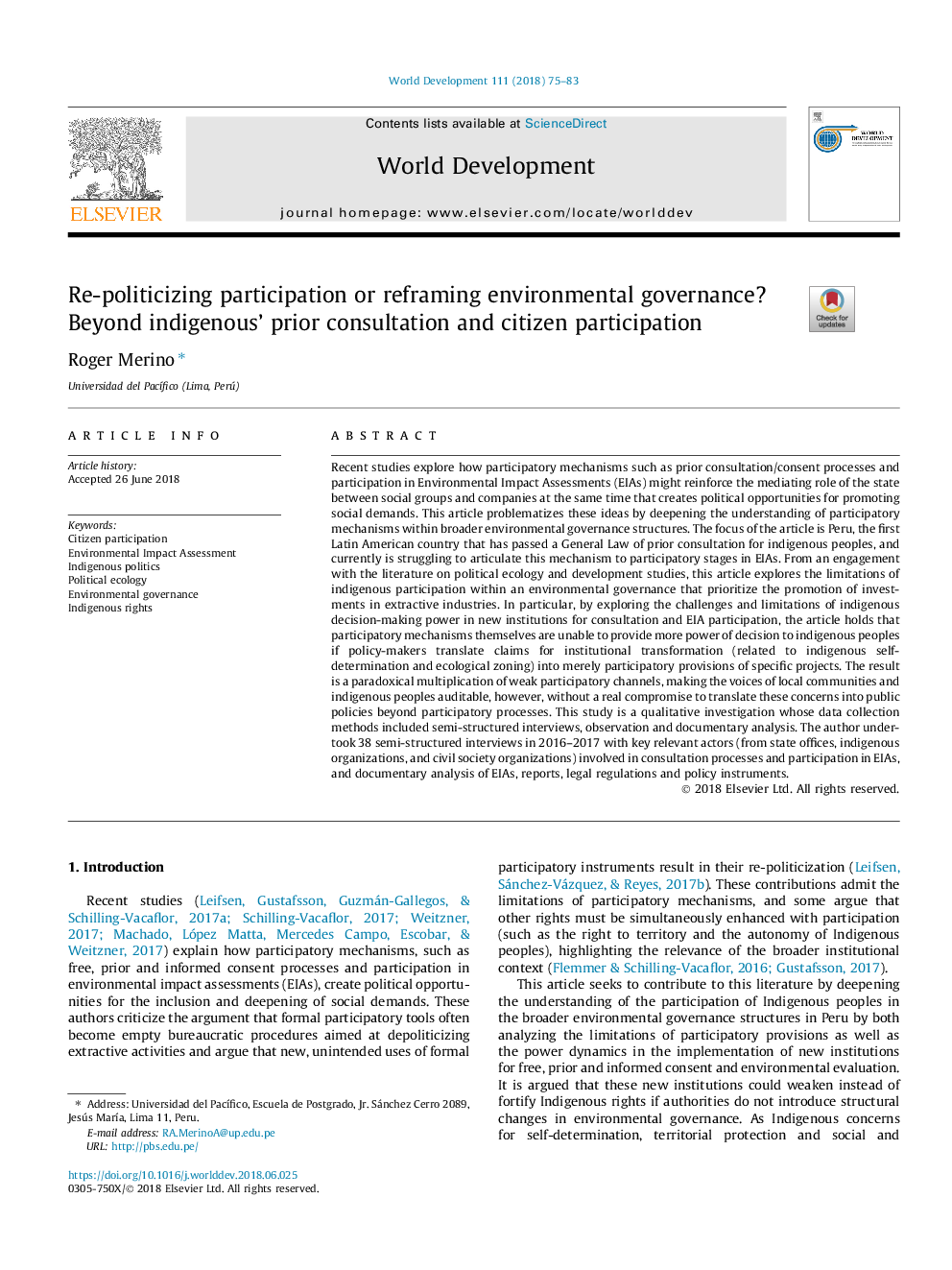| کد مقاله | کد نشریه | سال انتشار | مقاله انگلیسی | نسخه تمام متن |
|---|---|---|---|---|
| 7391060 | 1481107 | 2018 | 9 صفحه PDF | دانلود رایگان |
عنوان انگلیسی مقاله ISI
Re-politicizing participation or reframing environmental governance? Beyond indigenous' prior consultation and citizen participation
ترجمه فارسی عنوان
مشارکت سیاسی مجدد یا اصلاح قوانین زیست محیطی فراتر از مشاوره پیشین بومی و مشارکت شهروندان
دانلود مقاله + سفارش ترجمه
دانلود مقاله ISI انگلیسی
رایگان برای ایرانیان
کلمات کلیدی
مشارکت شهروند، ارزیابی اثرات زیست محیطی، سیاست بومی، محیط زیست سیاسی، حکومتداری محیط زیست، حقوق بومی،
موضوعات مرتبط
علوم انسانی و اجتماعی
اقتصاد، اقتصادسنجی و امور مالی
اقتصاد و اقتصادسنجی
چکیده انگلیسی
Recent studies explore how participatory mechanisms such as prior consultation/consent processes and participation in Environmental Impact Assessments (EIAs) might reinforce the mediating role of the state between social groups and companies at the same time that creates political opportunities for promoting social demands. This article problematizes these ideas by deepening the understanding of participatory mechanisms within broader environmental governance structures. The focus of the article is Peru, the first Latin American country that has passed a General Law of prior consultation for indigenous peoples, and currently is struggling to articulate this mechanism to participatory stages in EIAs. From an engagement with the literature on political ecology and development studies, this article explores the limitations of indigenous participation within an environmental governance that prioritize the promotion of investments in extractive industries. In particular, by exploring the challenges and limitations of indigenous decision-making power in new institutions for consultation and EIA participation, the article holds that participatory mechanisms themselves are unable to provide more power of decision to indigenous peoples if policy-makers translate claims for institutional transformation (related to indigenous self-determination and ecological zoning) into merely participatory provisions of specific projects. The result is a paradoxical multiplication of weak participatory channels, making the voices of local communities and indigenous peoples auditable, however, without a real compromise to translate these concerns into public policies beyond participatory processes. This study is a qualitative investigation whose data collection methods included semi-structured interviews, observation and documentary analysis. The author undertook 38 semi-structured interviews in 2016-2017 with key relevant actors (from state offices, indigenous organizations, and civil society organizations) involved in consultation processes and participation in EIAs, and documentary analysis of EIAs, reports, legal regulations and policy instruments.
ناشر
Database: Elsevier - ScienceDirect (ساینس دایرکت)
Journal: World Development - Volume 111, November 2018, Pages 75-83
Journal: World Development - Volume 111, November 2018, Pages 75-83
نویسندگان
Roger Merino,
